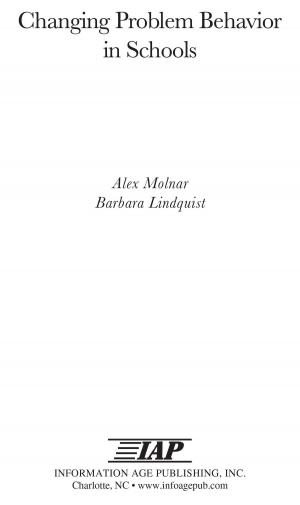ProjectBased Second and Foreign Language Education
Past, Present, and Future
Nonfiction, Reference & Language, Education & Teaching, Higher Education, Language Arts, Linguistics| Author: | ISBN: | 9781607527169 | |
| Publisher: | Information Age Publishing | Publication: | September 1, 2006 |
| Imprint: | Information Age Publishing | Language: | English |
| Author: | |
| ISBN: | 9781607527169 |
| Publisher: | Information Age Publishing |
| Publication: | September 1, 2006 |
| Imprint: | Information Age Publishing |
| Language: | English |
Dewey's idea of Projectbased Learning (PBL) was introduced into the field of second language education nearly two decades ago as a way to reflect the principles of studentcentered teaching (Hedge, 1993). Since then, PBL has also become a popular language and literacy activity at various levels and in various contexts (see Beckett, 1999; FriedBooth, 2002; Levis & Levis, 2003; Kobayashi, 2003; Luongo Orlando, 2001; Mohan & Beckett, 2003; Weinstein, 2004). For example, it has been applied to teach various ESL and EFL skills around the world (e.g., FriedBooth, 2002). More recently, PBL has been heralded as the most appropriate approach to teaching contentbased second language education (Bunch, et al., 2001; Stoller, 1997), English for specific purposes (FriedBooth, 2002), communitybased language socialization (Weinstien, 2004), and critical and higher order thinking as well as problemsolving skills urged by the National Research Council (1999). Despite this emphasis, there is a severe shortage of empirical research on PBL and researchbased frameworks and models based on sound theoretical guidance in general and second and foreign language education in particular (Thomas, 2000). Also missing from the second and foreign language education literature is systematic discussion of PBL work that brings together representative work, identifying obvious gaps, and guiding the field toward future directions. This, first of its kind, volume bridges these obvious gaps through the original work of international scholars from Canada, Israel, Japan, Singapore, and the US.
Dewey's idea of Projectbased Learning (PBL) was introduced into the field of second language education nearly two decades ago as a way to reflect the principles of studentcentered teaching (Hedge, 1993). Since then, PBL has also become a popular language and literacy activity at various levels and in various contexts (see Beckett, 1999; FriedBooth, 2002; Levis & Levis, 2003; Kobayashi, 2003; Luongo Orlando, 2001; Mohan & Beckett, 2003; Weinstein, 2004). For example, it has been applied to teach various ESL and EFL skills around the world (e.g., FriedBooth, 2002). More recently, PBL has been heralded as the most appropriate approach to teaching contentbased second language education (Bunch, et al., 2001; Stoller, 1997), English for specific purposes (FriedBooth, 2002), communitybased language socialization (Weinstien, 2004), and critical and higher order thinking as well as problemsolving skills urged by the National Research Council (1999). Despite this emphasis, there is a severe shortage of empirical research on PBL and researchbased frameworks and models based on sound theoretical guidance in general and second and foreign language education in particular (Thomas, 2000). Also missing from the second and foreign language education literature is systematic discussion of PBL work that brings together representative work, identifying obvious gaps, and guiding the field toward future directions. This, first of its kind, volume bridges these obvious gaps through the original work of international scholars from Canada, Israel, Japan, Singapore, and the US.















